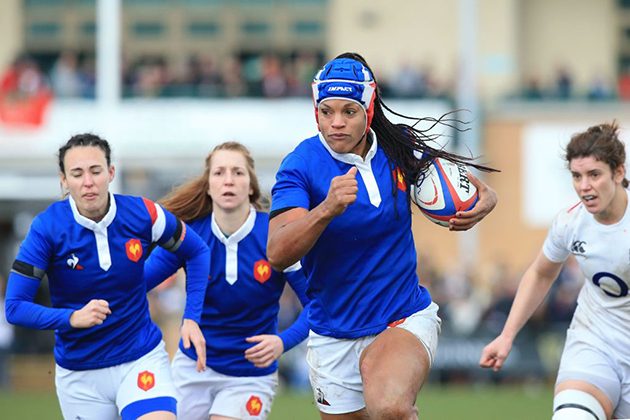England stormed to the Women’s Six Nations title – but questions are now being asked about the tournament going forward
What does England’s Grand Slam mean for Women’s Six Nations?
Here are a few statistics from England’s Women’s Six Nations Grand Slam:
- 278 points scored – 100 more than France and at least three times more than every other team.
- 45 points conceded – less than half any other team, who all conceded more than 100.
- 45 tries scored – the next best team in those stakes was France with 29 while no other side went beyond 13.
- Seven tries conceded – less than half any other team let in.
- Five try bonus-point wins, plus three extra points for completing the Grand Slam, put England 11 points clear at the top of the table with 28.
The 2019 #WomensSixNations…
Table ? https://t.co/RFVSFF9iSN pic.twitter.com/ueTaZqPwur
— Women's Six Nations (@Womens6Nations) March 18, 2019
The dominance from England is quite phenomenal. They didn’t concede a single point in their last two games against Italy (55-0) and Scotland (80-0). In that Scotland match at Twickenham, England scored 12 tries and carried the ball for 1,521 metres – that’s more than Wales’ men managed (ten tries, 1,480 metres) in their entire Grand Slam campaign.

One of many: wing Jess Breach runs in a try against Scotland at Twickenham (Getty Images)
Even the highly-anticipated clash against France in round two was one-sided, with England 24-0 up at half-time and winning 41-26 despite a second-half comeback from the visitors.
The concern going forward is whether the other teams in the championship can catch up with England as few want to see this sort of procession every year.
People love sport for the unpredictable and unexpected; with one team so far ahead of the others, the Women’s Six Nations doesn’t have that.

Fans’ favourite: Marlie Packer with supporters at Sandy Park after the Italy match (Getty Images)
The crowds for this year’s tournament were brilliant and brought the sport to a new audience, but how many will keep coming back if they know the result before walking through the turnstile?
And do England really benefit? Yes, the players want to succeed and lift trophies, but if they are not truly tested in this annual competition, the chances of them coming unstuck against better teams – notably the Black Ferns – at the World Cup increase because they will not be accustomed to those high-pressure situations. And the World Cup is the ultimate goal.
The likelihood is that England will get better too. This Six Nations came only a few weeks after the squad went professional. Next year they will have been training full-time for 12 months, with those improvements in skills and conditioning hard for other nations to match.

Rivalry: Wales defeated Ireland 24-5 in the final round (Getty Images)
So how can the other nations close the gap? It’s hard to see them all going down the fully professional route but there are other things that would help.
For a start, put structures in place not just to grow the game at grass-roots level but enhance elite performance.
Listening to former internationals Fiona Steed, Lynne Cantwell and Jenny Murphy dissecting Ireland’s disappointing campaign on RTE Rugby, they suggest that the women’s 15s game in the country has gone backwards since they reached the World Cup semi-finals in 2014.
The #rterugby panel of @SteedFiona @jennymurphy045 and @cantwelll discuss Ireland's poor performance in the #WomensSixNations and the wider issues around the game. https://t.co/UnQmK039ZC
— RTÉ Rugby (@RTErugby) March 17, 2019
Improved domestic competitions in Ireland, Scotland and Wales would certainly be a step forward.
The focus on sevens is another issue. Yes, sevens often delivers its own funding because it is an Olympic sport but this should not be to the detriment of the 15s game – surely countries want both formats of the game to be successful?
The scheduling doesn’t help in this regard. France were without key players for the England match because they had been involved in the Women’s World Sevens Series event in Australia the previous weekend.

Sevens call: France were without key players against England (Getty Images)
These events shouldn’t clash in the calendar for it would allow teams to pick their best squads for both events and ensure they got maximum exposure. This is true for some of the men’s teams too, with Americas Rugby Championship sides denuded of players involved in the Sevens Series.
Finally, and perhaps most contentiously, should the Women’s Six Nations exactly replicate the men’s? Would putting England v France on the final weekend create more drama than having the likely title decider on the second weekend simply because it matched the men’s fixture? Would a team like Spain be more competitive than Scotland?
England were sublime in winning this year’s Women’s Six Nations, but there are plenty of questions for the competition to ponder going forward.
Follow Rugby World on Facebook, Twitter and Instagram.





